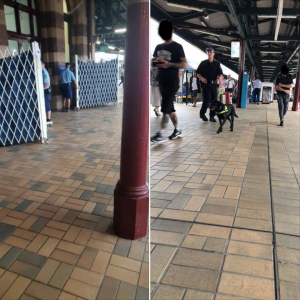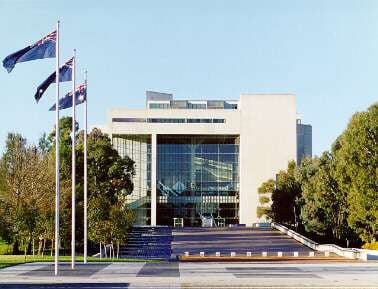With the heavy policing at Sydney’s Midnight Mafia Festival last weekend to the pop-up privacy screens at Central station, people have raised concern over the harsh strip-search laws in New South Wales. The invasive practice of ordering people to remove their clothes in strange private environments appears to be normalised as a general search procedure in recent years. In 2017-2018, there was a 46% increase of strip searches in NSW compared to 2014-15. Additionally, a large percentage of police strip-searches are disagreed upon by the courts.
Using strip-search procedures as a general or first resort option must be condemned. In the past 20 years, Peter O’Brien and his lawyers have successfully sued police agents all over Australia in many dozens of unlawful strip search matters.
Police hounding vulnerable persons
The discretionary power by police has traumatised a number of our clients and has caused harm throughout the community.
It is extremely disturbing that the current law allows adult police officers to strip-search people as young as 10 years old. Although persons between the ages of 10-18 have the right for a support person, some police may dispense with this for a number of reasons, such as the support person taking a long time to arrive or is too far away. This right also applies to persons who have a mental disability or cognitive impairment. Aboriginal communities have been exposed to these poor procedures and practices for many years.
Additionally, the strip search procedure is extremely demeaning and invasive for persons who have been victims of sexual assault. A strip-search may trigger issues of trust and re-traumatisation. Although strip-searches are conducted in private places, the trip to a police station in the back of a police van can be scary, claustrophobic and humiliating. Therefore, many people choose to waive their right to privacy due to the extended time and nature of these environments. Although people are strip-searched by police of the same sex, there are cases where police of the opposite sex are in the same room as onlookers. This adds to the harassment and humiliation experienced by the person. The privacy and dignity of citizens must be preserved at all times.
The Difficulty of Collecting Strip-Search Data
David Shoebridge, MP for Greens NSW, said 14 interrogations of the police were made to collect data about strip-searches in NSW. The measures taken to obtain this information included: Freedom of Information applications (Government Information Public Access (GIPA) applications), questions on notice in parliament, and direct questioning in budget estimates.
In 2014-2015, the number of strip searches in NSW was 3735.
In 2017-2018, there were 5480 strip-searches in NSW. This leap reveals the shift of focus in police procedures and abuse of power.
The Issue in the Law
Under the Law Enforcement (Powers and Responsibilities) Act (LEPRA), sections 31, 32, 33, 34, 34A, and Part 15, govern the use of strip searches. The police must suspect on reasonable grounds a strip search is necessary and that the seriousness and urgency of the circumstances make the strip search necessary. The issue is the legislation does not define ‘reasonable grounds,’ ‘necessary,’ or ‘seriousness and urgency’ in the circumstances. A police is not authorised to request a person to squat, cough, remove a tampon (as in some cases). This antiquated piece of legislation needs to change.
A Step Forward
Safe and Sound, a campaign that launched in November 2018, aims to make changes to the NSW strip-search laws. Additionally, Redfern Legal Centre has commissioned the University of NSW law school for a report into strip-search laws across the country. The report will compare NSW search laws to other jurisdictions and provide recommendations on how the laws in NSW can be improved. Subsequently, these recommendations will be used to lobby politicians to change the antiquated search laws that are causing harm to members of the community. It is hoped the harm rate is minimised in our communities and a person’s dignity and privacy are always preserved.
Points to remember if you are facing a strip search:
* You don’t have to give your name unless something is found
* Do not ‘consent’, but co-operate
* Ask police to write your objections in their notebook
* Ask for police officer’s name and station
* Ask for the reason you are being searched
* Receive legal advice
If you have been wrongfully strip-searched or mistreated by police, contact us on (02) 9261 4281 or by email at to discuss your legal options.






